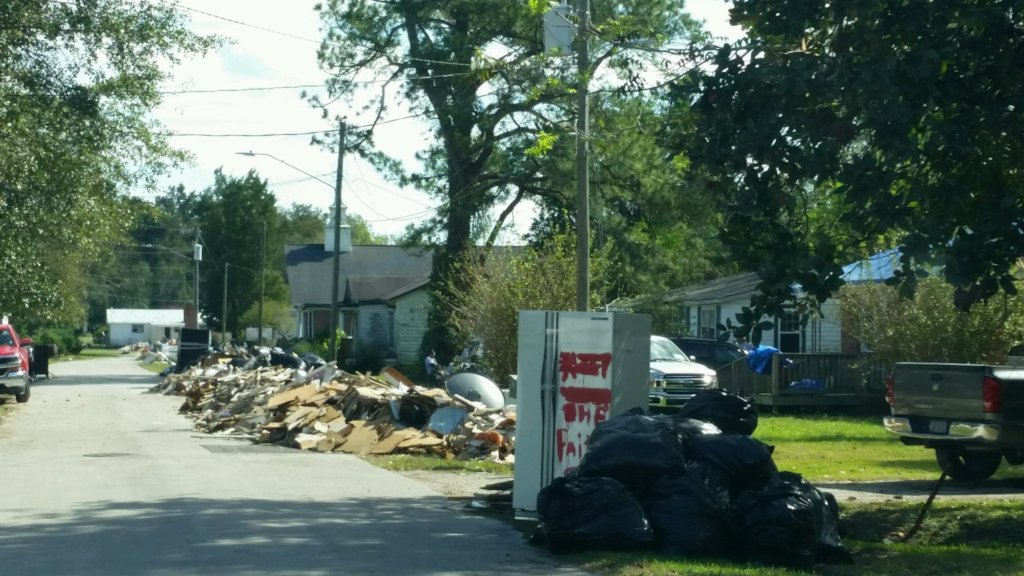By Will Frechette | GlobalGiving
The impact of Hurricane Florence and its catastrophic flooding is still being felt throughout the Carolinas, where thousands of individuals and families remain in temporary housing seven months after the storm made landfall. Our nonprofit partners, with the generous support of donors like you who've raised more than $775,000 for community-led disaster response, have been hard at work helping hurricane-affected residents recover and rebuild.
Here's a look at the work your donation is helping make possible in the Carolinas:
Thank you again for making the smart decision to donate cash after the storm, and for choosing to support community-led disaster recovery efforts through our Hurricane Florence Relief Fund. To learn more about our unique approach to disaster recovery, visit the Disaster Recovery Network at GlobalGiving.
With gratitude,
Will + the GlobalGiving Team
Project reports on GlobalGiving are posted directly to globalgiving.org by Project Leaders as they are completed, generally every 3-4 months. To protect the integrity of these documents, GlobalGiving does not alter them; therefore you may find some language or formatting issues.
If you donate to this project or have donated to this project, you can receive an email when this project posts a report. You can also subscribe for reports without donating.
When a disaster strikes, recovery efforts led by people who live and work in affected communities are often overlooked and underfunded. GlobalGiving is changing this reality. Since 2004, we've been shifting decision-making power to crises-affected communities through trust-based grantmaking and support.
We make it easy, quick, and safe to support people on the ground who understand needs in their communities better than anyone else.
They were there long before the news cameras arrived, and they’ll be there long after the cameras leave. They know how to make their communities more resilient to future disasters, and they’re already hard at work. GlobalGiving puts donations and grants directly into their hands. Because the status quo—which gives the vast majority of funding to a few large organizations—doesn’t make sense.
Questions about this project? Contact us
